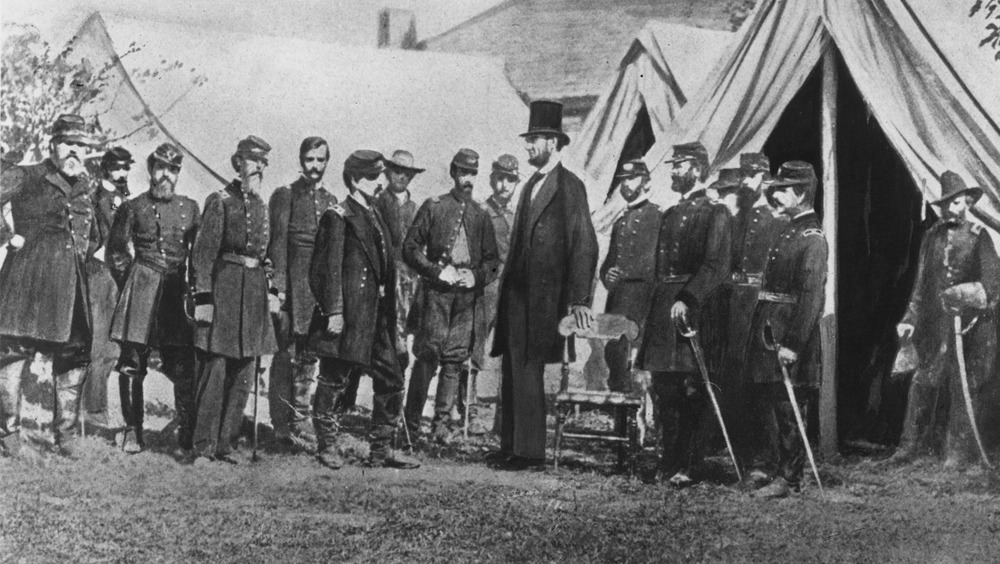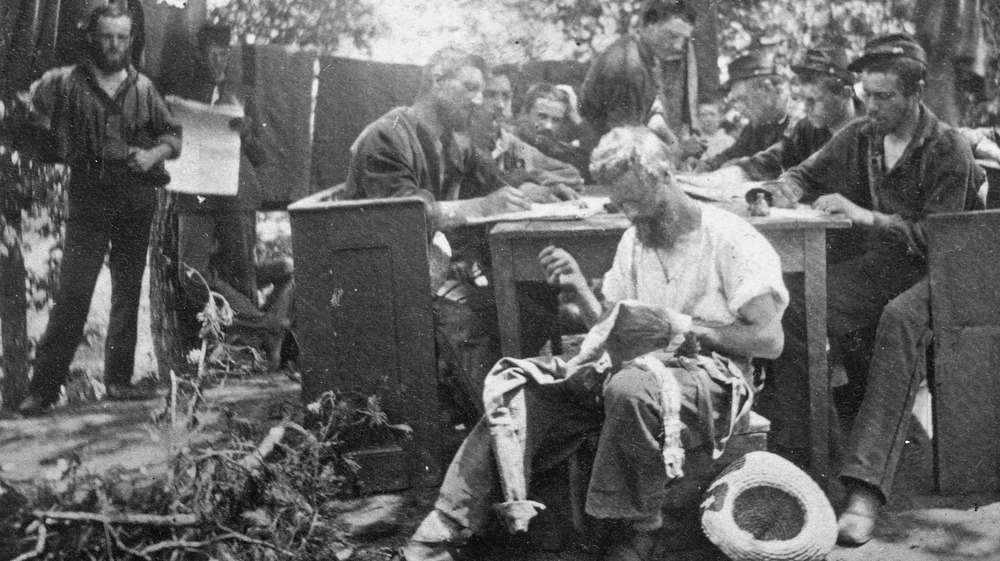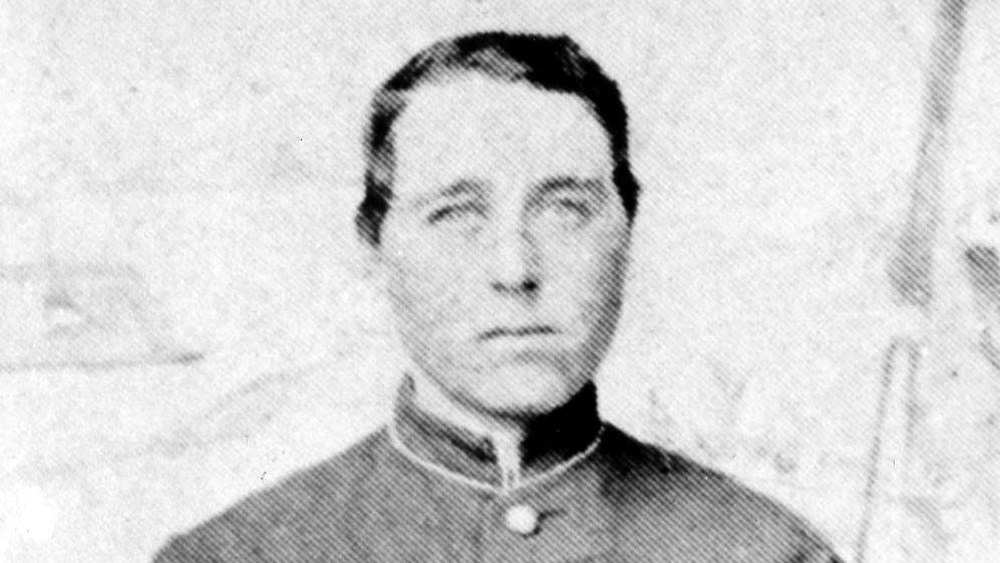Hundreds Of Women Fought As Men During The Civil War
Most people forget that the Civil War happened during the Victorian era. Victorian ideals of morality and decency ran rampant. This also meant that women had largely limited roles outside of the home. But this smaller role did not stop several women from fighting in the Civil War.
According to PBS, it's estimated that anywhere from 250 to 1,000 women disguised themselves as men to fight in the battlefront. Both Union and Confederate sides saw women dressed as men. Records showed that many women died in some of the war's significant clashes, including Antietam, Gettysburg, Fredericksburg, Vicksburg, and Shiloh.
It wasn't rare to see women near the battlefield — many women volunteered as nurses — but women taking up arms was another matter. They had to make sure no one discovered their secret. Smithsonian Magazine noted it was easy for women to pass themselves off as men, or as was more often the case, boys. Although the cutoff age was 18, many boys often ignored that rule. All women had to do was bind their breasts and cut their hair, and they looked like a beardless teenage boy whose voice hadn't dropped yet.
It wasn't unusual for some women to present themselves as men. PBS said those who come from working-class backgrounds sometimes wore male clothing to get better jobs. They often did so because most of the jobs available for them tended to be domestic work and were usually paid little. By dressing up like men, they could access better-paying jobs.
It was easy to hide
They faced the same dangers as all other soldiers and did all the jobs that were required, like scouting, spying, and acting as prison guards.
And as it turns out, it wasn't even that hard to hide the fact they were cross-dressing. Soldiers during the Civil War slept fully clothed, rarely bathed, and didn't share any bathrooms. Both the Union and Confederate armies didn't much care for preliminary medical exams either, so anyone joining the fight didn't have to a physical first. The only times women were discovered in uniform were in medical crises. If they were injured or fell ill, they were often brought to a field doctor or a hospital. So what happens when the army finds out their secret? Are they left in the snow like in Mulan (posted on YouTube) when they found out she was a girl?
Nope, said Smithsonian. Most of the time they were just sent home. Records showed that some women were imprisoned for essentially lying their way into the army, but it wasn't prevalent. More women, as well as soldiers in general, died of disease before they even made it to doctors to be treated.
The armies did try to downplay women's presence on the battlefield, explained the National Archives, even though the public was fascinated by their stories. Some women even managed to get praised in the military before they revealed they weren't men.
Jennie Hodgers was fascinating
One of the few women who got commendations in the ranks during the Civil War was Sarah Edmonds, or as she was known, Pvt. Franklin Thompson. Edmonds was praised in military records for her dedication to the Union. She eventually left the army, married, and had children. Other famous women who fought as men were Sarah Rosetta Wakeman (Pvt. Lyons Wakeman), Satronia Smith Hunt (who enlisted with her husband), Mary Stevens Jenkins, and Loreta Velazquez (aka Lt. Harry T. Buford).
But it was the story of Jennie Hodgers, or Albert D.J. Cashier, that fascinated many people. Hodgers joined the Union army in 1862 at 19 and stayed until an honorable discharge in 1865. Cashier/Hodgers went back home to Illinois and continued to live life as a man, at one point even joining a veterans' organization. Hodgers's secret was discovered in 1911, but doctors didn't say anything until 1914. By that time, Hodgers was sent to a mental asylum and died the next year. Historians believe Hodgers was trans, though it wasn't like she was the only woman who lived as a man during that time.
Most women who successfully left the army without being discovered did not get pensions once they revealed their true identities. One notable exception was Edmonds, who successfully applied for a pension.
Thankfully, women can join the military without hiding themselves today. At least during the Civil War, some women flouted Victorian rules.


